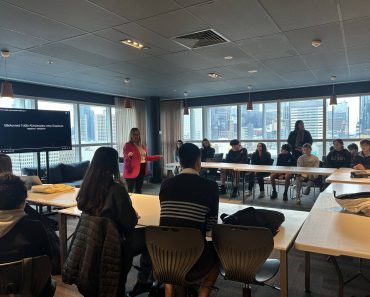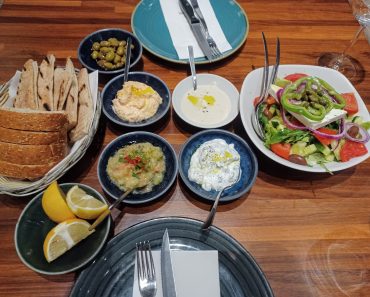“I think of Aegina, the home in the sun, the indigo sea, and I ask myself: what kind of beast must man be, how greedy his soul, to abandon such priceless blessings and wander far away into the rain and fog?”
So wrote Nikos Kazantzakis in July 1939, from London, in a letter to the Angelakis family—close friends with whom he shared a deep affection for the island of Aegina. Like other great Greek intellectuals who found inspiration on this Saronic Gulf retreat—Seferis, Sikelianos, Moralis, Kapralos—Kazantzakis was drawn to Aegina’s light, silence, and unpretentious beauty.
Eighty-six years later, on the warm weekend of July 11-12, a new generation of Greek artists—each with their own unique connection to the island—came together to open a new chapter in its artistic life, launching the 1st Aegina Jazz Festival. They shared a passion for jazz, but also a love for an island that has long offered space for reflection, creation, and community.

The island of Aegina… surprisingly close to Athens.
A Contemporary Voice for a Local Poet
“Every time a cultural initiative is born, it’s a victory—for us, for the artists, for the people,” said Greek singer Haris Alexiou, who had the honor of opening the festival. A few days after July’s full moon, under a canopy of stars and the ambient lighting of a landmark building, the festival paid tribute not only to jazz, but also to one of Aegina’s most cherished literary voices: Katerina Anghelaki-Rooke.

Greek singer Haris Alexiou honored the late local poet Katerina Anghelaki-Rooke with readings of her work at the festival./ Aris Michalopoulos
Though born in Athens, Anghelaki-Rooke lived, wrote, and dreamed in Aegina. Her house, surrounded by pistachio trees—her “little paradise,” as she once called it—, offered both refuge and inspiration. “We chose Katerina because she lived here. She was of Aegina. Her work is remarkable. I love her, and I read her,” Alexiou told TO BHMA International Edition.
A goddaughter of Kazantzakis—who encouraged her to publish her first poem at 17—Anghelaki-Rooke’s presence was felt throughout the weekend in the form of readings interwoven between the music. Her poetry bore the audience through summers and Easters on the island and through traditions, longings, and returns, conjuring up moments of bitter-sweet nostalgia among the blue notes.
“We hope,” Alexiou added, “that her house can open next summer. Then we might read her poetry there, or do something equally artistic.”
A Local Bar’s Idea Grown Big
To many, Aegina is a quick island getaway; for others, it is Greece’s pistachio capital. But beneath its summer ease lies a vibrant artistic spirit. Still, the idea of hosting a jazz festival here was little more than a dream in the summer of 2023—until it began to take shape in Proka, a small music bar near the island’s port, where a group of local and seasonal jazz lovers often gathered.
That informal circle gave rise to the Jazz Solidarity Network (JSN); Greece’s only official jazz institution at present, its 280 members span music, dance, and performance. When the need for a dedicated, multi-day jazz festival became impossible to ignore, Aegina stepped up to host its first-ever jazz festival this summer. Under the artistic direction of Kosmas Anagnostopoulos, with the backing of the Greek Ministry of Culture and the Ephorate of Antiquities of Piraeus and Islands helping with the organization, the event attracted approximately 1,200 visitors over its two days.
Greek Jazz, Dance Dazzle Aegina
When the port began to empty on Friday evening, it could only mean one thing: something was beginning inland. As the light of day slowly gave way to a deep blue sky, composer and oud player Alekos Vretos and his quartet opened the festival with “Mediterranean Echoes,” their blend of world jazz steeped in local rhythm and soul.
Dancer and performer Maria Mavridou followed with together with musicians Alekos Vretos, Ntinos Manos and Nick Thessalonikefs in a solo improvisation that embodied the spirit of the initiative. Now based in Amsterdam, Mavridou has long-standing ties to Aegina, having previously organized the Tsak Bam Festival, a contemporary arts event launched in 2017. “It’s always really touching when there’s an artistic project here,” she told TO BHMA International edition. “The creative force of Aegina is precious to me.”

Amsterdam-based dancer/performer/maker Maria Mavriou is working in the wide field of cross-disciplinary performance. / Aris Michalopoulos
Later, the stage welcomed Greek jazz luminary George Kontrafouris and his Flying Jazz Trio, filling the summer night with the electric groove of the Hammond organ—an instrument played by 50 or so active musicians across Europe, as he explained. Having spent his every childhood summer on the island, Kontrafouris described the festival as “an excellent initiative and a chance to hear other genres on the island.”
As the first night came to a close, the audience was already abuzz in expectation of what Saturday would bring. The turnout had been so impressive, more chairs would clearly be needed for the following evening.

The Flying Jazz Trio featuring guitarist and composer Stefanos Andreadis, pianist George Kontrafouris and drummer Nick Thessalonikefs. / Aris Michalopoulos
The final night included performances from the Benetatos-Affolter Vocal Jazz Quartet, interpreting classics from the Great American Songbook.
Dancer Loukiani Papadaki followed with an improvisational piece that drew the audience into a quiet, intimate space.
Then came the festival’s high-energy finale: Hippomaniacs—a band blending ’70s funk, jazz-blues improvisation, and psychedelic grooves—brought the two-day celebration to a vibrant close.
A Living Monument Hosts a Living Art
The venue itself—the former Kapodistrian Orphanage—lent the festival its most poignant layer. The building, constructed in 1828 under Greece’s first governor Ioannis Kapodistrias, was originally built to shelter and educate the orphans of Greece’s War of Independence. It later served various roles, including a high-security prison for political prisoners (1880-1984), before being handed over to the Ministry of Culture for restoration and transformation into a museum.

Credit: Aris Michalopoulos
“It’s a deeply meaningful place,” said Kontrafouris, “and to reuse it in a way that pays artistic and cultural respect to its past is a powerful act.” “I think mine is the last generation that saw it in operation as a prison,” he adds.
Festival organizer Anagnostopoulos echoed the sentiment in his opening address:
“Reclaiming what was once Aegina’s prison as a cultural space is a meaningful act—one that inspires awe, a sense of responsibility, and dreams for the future–not only for us, but for anyone who wants to create something here.”
He added: “Now that this space is open to cultural organizations, Aegina can finally claim its rightful place on the Athens–Epidaurus cultural axis.”

Credit: Aris Michalopoulos
An Initiative that Moves, A Project to Stay
It’s fitting that a project that began at the grassroots level should already have put down roots—because the Festival is here to stay.
“I wasn’t even a jazz fan,” admitted local shop owner Katerina Mourtzi, “but I was thrilled. And the turnout has been amazing.” Mourtzis, whose family has run a business in the port for decades, was among many small business owners who supported the festival. “We like to support small, genuine initiatives—those that may lack big sponsors, but have a real soul.”
Among the crowd was Konstantinos Kontizas, a 32-year-old permanent resident of the island. “As a jazz lover, I already knew some of the artists,” he said. “To see them here, in my hometown, was an emotional experience. And it has inspired me to pick up music again. This should happen again—and again.”
“There are more spaces across the island,” he added, “which have real cultural potential. The festival reminded us of that.”
“Following the preparations for the festival online,” said Mavridou, “it was amazing to see how much support there was from the island itself.”
Kontizas captured the sentiment best: “It’s given people of all ages a new creative spark. And begun a conversation about where the island can go, culturally and artistically.”
Mourtzi, too, is optimistic. “I’d love to see a Fine Arts school housed in the old prison one day. It would suit the island’s artistic character perfectly. And I’ll definitely be here next year—to support the event again with all my heart.”


_128-370x297.jpg)




